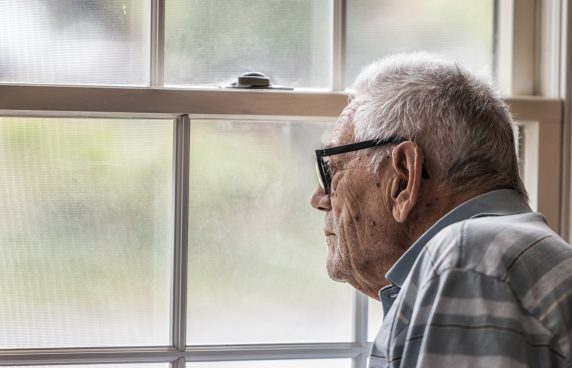RCGP calls for social prescriber in every practice to tackle ‘epidemic of loneliness’

The RCGP has launched a UK-wide campaign to tackle the ‘epidemic of loneliness’ and social isolation affecting millions of patients.
A survey carried out by the RCGP found that three out of four GPs see between one and five people a day who have come in mainly because they are lonely.
The college is calling for every GP to have access to a social prescriber to help people make connections to prevent them becoming isolated and lonely.
Its action plan also calls on better information sharing with the NHS and local authorities to prevent lonely people falling between the cracks.
In Scotland, the RCGP also called for 10-minute appointments to be scrapped so that GPs can play a part in dealing with the loneliness.
RCGP chairs in Wales and Northern Ireland also said 10-minute appointments were ‘unfit for purpose’ and called for the ‘extreme pressures’ facing general practice to be addressed so GPs have enough time to spend with patients.
Professor Helen Stokes-Lampard, RCGP chair, said: ‘Moments of meaningful connection really do matter, but for some people, they are elusive – for some, they might only get these when they see their GP.
‘A national-level campaign to make people aware of how big a problem loneliness is, and the very real adverse impact it can have on people’s health and wellbeing, could help to break down some of the barriers that are keeping lonely people lonely.’
She added that while loneliness was not a medical condition, some research studies suggest it can affect patients’ health perhaps even more than obesity.
‘It can also have a real impact on workload pressures in general practice and the wider NHS, at a time when the whole system is facing intense resource and workforce challenges.’
Dr Alasdair Forbes, RCGP Scotland’s deputy chair, said GPs and their teams had a key role to play in identifying people who are chronically lonely or at risk of becoming lonely. ‘GPs need time to care. That is why we’re calling for an end to 10-minute appointments, as we want GPs to be able to spend a longer time with patients and get to know what really matters to them.’
It has been estimated that loneliness puts people at a 50% increased risk of an early death compared with those with good social connections.
Dr Rebecca Payne, RCGP Wales chair, said it was important to address the underlying causes of illness.
‘Treating patients means listening to them and understanding their concerns – but GPs need time to care. Ten-minute GP appointments are unfit for purpose but the extreme pressures on general practice means it can be impossible for GPs to spend longer with patients.’
Dr Grainne Doran, RCGPNI chair, said tackling loneliness was about more than medical care.
‘We know it can be hard for people who are lonely to know where to turn for support. That’s why we want to see a dedicated professional for every GP surgery – a community navigator.’
It comes as a recent study showed that GP attendance fell in patients who were targeted with loneliness intervention measures.
Professor Stokes-Lampard told last year’s RCGP Conference that loneliness can be as bad for health as a chronic long-term condition. She called on the four governments of the UK to cut red tape and tick-boxes in order to give GPs ‘time to care’.
Visit Pulse Reference for details on 140 symptoms, including easily searchable symptoms and categories, offering you a free platform to check symptoms and receive potential diagnoses during consultations.












